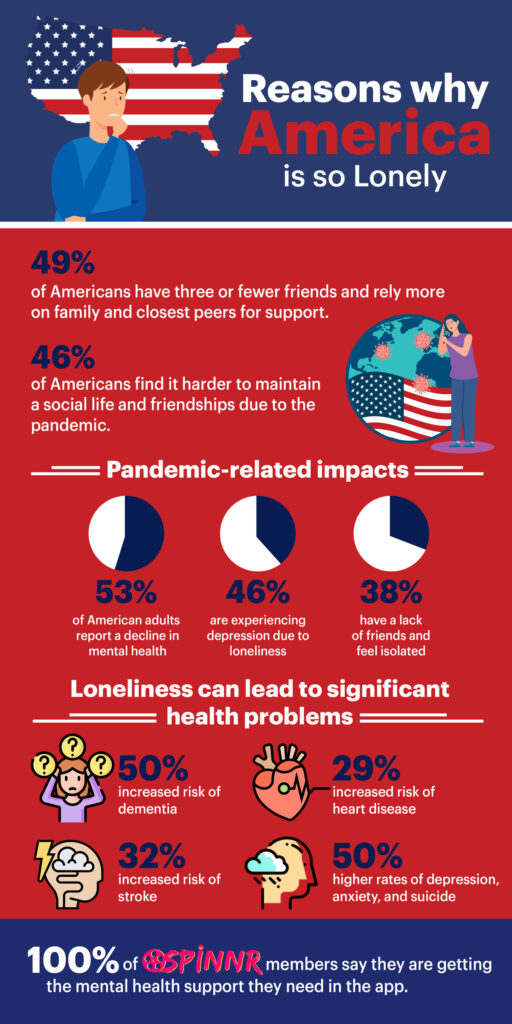Impact of Inflation
The impact of inflation can significantly alter people’s lives, including their mental health. 46% of Americans reported feeling lonely and depressed due to the pandemic and post-pandemic effects. Now, as the cost of living rises and uncertainties loom, individuals may experience increased stress, anxiety, and even depression. In this post, we will explore the connection between inflation, worry, and their effects on mental well-being.

Understanding Inflation
Inflation refers to the sustained increase in the general price level of goods and services over time. When inflation occurs, the purchasing power of money decreases, making it more challenging for individuals to afford their basic needs and maintain their desired lifestyle. The constant struggle to keep up with rising prices can lead to financial stress and worry. Money that was spent to feel good or spend time with family and friends is now limited, and most people are choosing between a roof over their heads, electricity, or food to eat. In reality, they all seem pretty equally important.
Cycle of Worry
Worry often accompanies inflation as individuals become concerned about their financial stability and future. The fear of not being able to afford essential items, pay bills, or save for the future can be overwhelming. This constant worry can create a cycle of anxiety, leading to a negative impact on mental health. When people are worried all the time, they are truly not the best version of themselves.
Financial Stress and Mental Health
Financial stress resulting from inflation and worry can have severe consequences on mental health. Studies have shown a strong correlation between financial difficulties and increased rates of depression, anxiety, and other mental health disorders. The constant pressure to make ends meet and the fear of falling into financial hardship can take a toll on one’s emotional well-being and physical health. As more families are working full-time jobs and secondary odd jobs after work part-time, they may start to lash out from being overly tired and never getting a break for themselves.
Relationship Strain
Inflation and worry can also strain relationships, both personal and professional. Financial stress can lead to conflicts and disagreements within families and couples, as well as among friends and colleagues. The strain caused by financial worries can erode trust, communication, and overall relationship satisfaction. Many people will have to turn down invitations with friends or trips due to cutting costs and staying on a budget. This could actually make people feel more distant from normal human interaction that they were once used to and loved ones.

Coping Strategies
While inflation and worry may seem overwhelming, there are strategies individuals can employ to mitigate their impact on mental health:
Financial Planning
Creating a budget, tracking expenses, and setting financial goals can help individuals regain a sense of control over their finances and reduce worry. Cutting back on even the smallest cost can help regain some sense of relief. Ask yourself these questions every time you are going to make a purchase: Is this a want or need? Do I need this right now, or can it wait?
Seeking Support
Talking to loved ones, friends, or professionals about financial concerns can provide emotional support and practical advice. Look online for any assistance or services that could help in any way.
Self-Care
Engaging in activities that promote relaxation and well-being, such as exercise, meditation, or hobbies, can help alleviate stress and anxiety. All of these activities can be done fairly cheap if not free.
Professional Help
If financial worries persist and begin to significantly impact mental health, seeking professional help from therapists or counselors can provide valuable guidance and support. If you cannot afford therapy, there are support groups online with people who are also seeking some relief from all this pressure.
Inflation and worry can have a profound impact on mental health, leading to increased stress, anxiety, and depression. Recognizing the connection between financial concerns and mental well-being is crucial. By implementing coping strategies and seeking support, individuals can navigate these challenges and protect their mental health during times of inflation and worry. Remember, you are not alone, and there are resources available to help you through difficult times.
